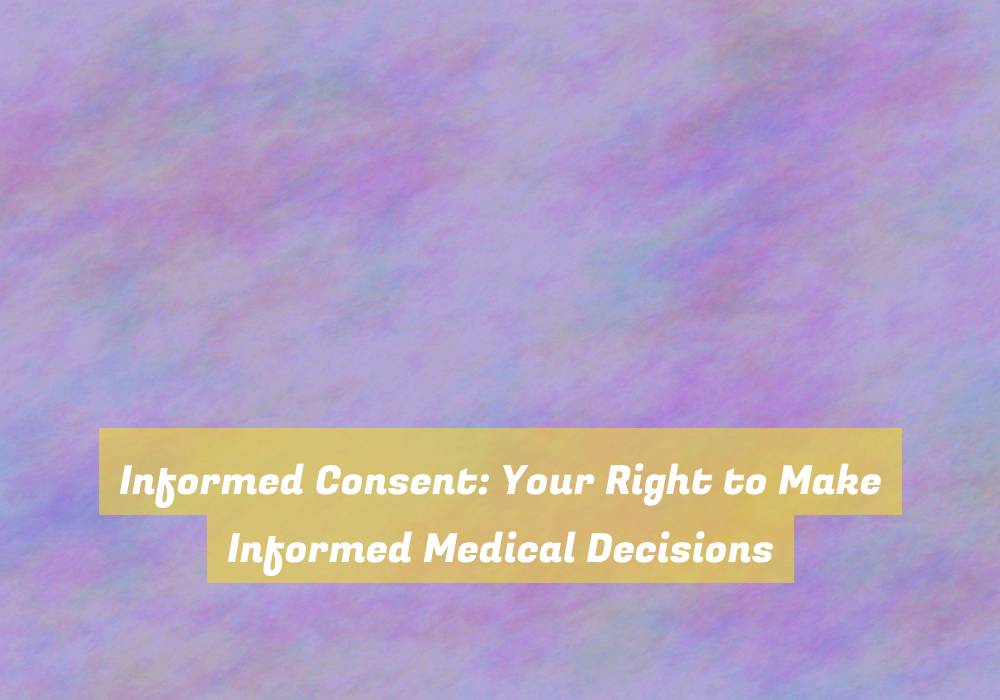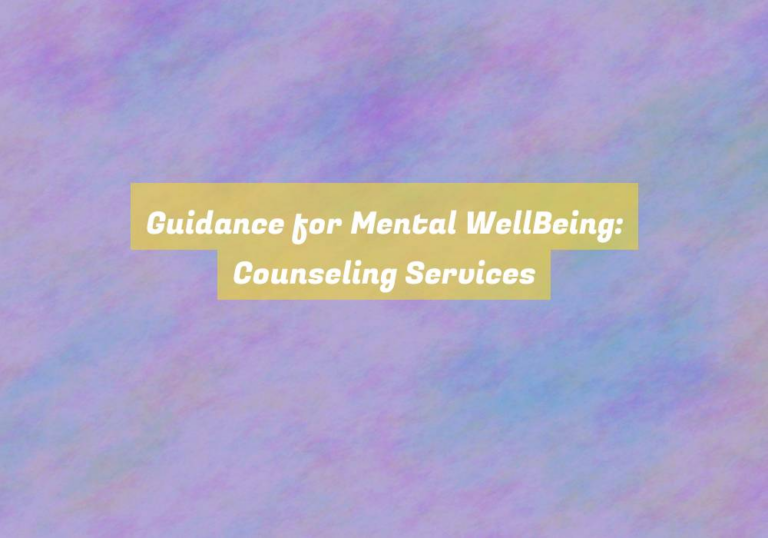Informed Consent: Your Right to Make Informed Medical Decisions
Imagine youG??re about to embark on a journey, and your GPS suddenly stops working. You wouldnG??t want to proceed without knowing the route, right?
In the same way, when it comes to your medical treatment, itG??s crucial to have all the information before making decisions. Informed consent is your compass in the complex terrain of healthcare, guiding you through the choices youG??re about to make.
But what happens when youG??re not given all the necessary details to make an informed decision about your own health?
Importance of Informed Consent
Understanding the importance of informed consent is crucial in making well-informed medical decisions for your care. When youG??re fully informed about your medical treatment, including the risks, benefits, and alternatives, youG??re better equipped to actively participate in decisions about your health. Informed consent not only empowers you but also ensures that your healthcare providers respect your autonomy and right to make decisions about your own body.
By actively engaging in the informed consent process, youG??re taking an important step in safeguarding your well-being. It allows you to have a clear understanding of the proposed treatment or procedure, which can help prevent misunderstandings and potential complications. Furthermore, being informed about the potential risks associated with a particular medical intervention enables you to weigh the benefits against the potential harm, ultimately leading to more personalized and effective healthcare decisions.
Informed consent also fosters a sense of trust and collaboration between you and your healthcare team. It establishes a transparent and open line of communication, where you can freely express your concerns and ask questions, leading to a more patient-centered approach to your care. Ultimately, the significance of informed consent canG??t be overstated, as it forms the cornerstone of patient-centered medical care.
Elements of Informed Consent
When considering the elements of informed consent, itG??s essential to thoroughly comprehend the key components that comprise this crucial process in medical decision-making.
Firstly, the healthcare provider must ensure that youG??re provided with all relevant information regarding your condition, proposed treatment or procedure, including its benefits, risks, and any potential alternatives. This information should be presented in a clear and understandable manner, tailored to your specific needs and level of comprehension.
Additionally, the healthcare provider should discuss the expected outcomes of the treatment or procedure, as well as any potential complications or side effects that may arise. Moreover, itG??s imperative that youG??re made aware of your right to ask questions and seek further clarification on any aspects of the proposed medical intervention.
Furthermore, your consent must be voluntary and given without any coercion or undue influence. Finally, you should be informed about your right to withdraw consent at any time, as well as the implications of such a decision.
These elements collectively form the foundation of informed consent, empowering you to make well-informed and autonomous decisions about your medical care.
Legal Aspects of Informed Consent
You must be aware of the legal implications associated with informed consent before undergoing any medical treatment or procedure. Informed consent isnG??t just an ethical and medical issue; it also holds legal significance.
The legal aspects of informed consent revolve around the patientG??s right to be informed about the risks, benefits, and alternatives to a proposed treatment or procedure. This right is protected by law to ensure that patients have the necessary information to make a well-informed decision about their medical care.
From a legal perspective, healthcare providers have a duty to disclose all relevant information to the patient before obtaining their consent for treatment. Failure to do so may result in legal consequences such as medical malpractice claims. Additionally, the patient must have the capacity to understand the information provided and make a voluntary decision without any coercion or undue influence.
Courts have consistently upheld the principle that patients have the right to make informed decisions about their medical care. This means that healthcare providers can be held legally accountable if they fail to ensure that patients are adequately informed before consenting to treatment.
Therefore, understanding the legal aspects of informed consent is crucial for both patients and healthcare providers to ensure compliance with the law and protect patient rights.
Ensuring Informed Decision Making
The legal requirement for healthcare providers to disclose all relevant information to the patient before obtaining their consent for treatment underscores the importance of ensuring informed decision making in the medical setting.
To ensure that youG??re making informed decisions about your medical care, itG??s crucial for healthcare providers to present information in a way that you can understand. This means using clear and simple language, providing visual aids when necessary, and allowing you enough time to process the information and ask any questions you may have.
Additionally, itG??s essential for healthcare providers to discuss all available treatment options, including their potential benefits, risks, and alternatives, so that you can weigh the pros and cons and make a decision that aligns with your values and preferences.
Furthermore, your healthcare team should also consider your cultural background, beliefs, and personal circumstances when presenting information and discussing treatment options, as these factors can significantly influence your decision-making process.
Ultimately, ensuring informed decision making empowers you to actively participate in your healthcare and make choices that are best for your overall well-being.
Conclusion
So, remember, itG??s your right to make informed medical decisions.
Make sure you understand all the details, risks, and benefits of any medical procedure or treatment before giving your consent.
Ask questions, seek clarification, and take your time to make the best decision for your health.
Your informed consent is crucial in ensuring you receive the best possible care.







You’re absolutely right in highlighting the crucial role of informed consent in healthcare decision-making. Having navigated the complex world of medical treatments myself, I can attest to how empowering it feels to fully grasp the options and implications of those choices. I remember facing a significant health decision and, after thorough discussions with my physician, I felt much more confident in my ability to choose a treatment plan that aligned with my values and preferences.
Your experience really captures the essence of what it means to engage in a meaningful dialogue with healthcare providers. It’s interesting how navigating tough decisions can sometimes lead us to a deeper understanding of our own values and priorities. When you have that opportunity to really dive into the details with your physician, it can transform not just the decision-making process but the entire patient experience.